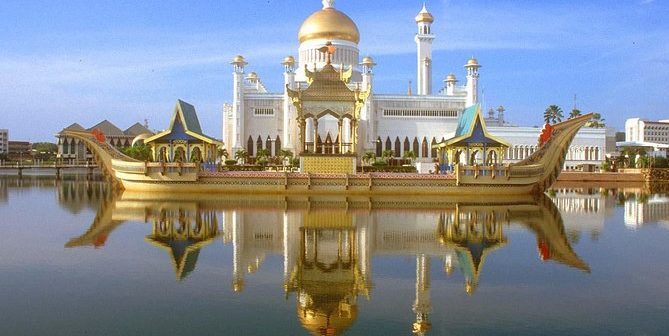In a historic diplomatic event, Indian Prime Minister Narendra Modi’s visit to Brunei Darussalam marks the first time an Indian head of state has set foot in the Southeast Asian nation. This landmark visit underscores the importance India places on enhancing ties with Brunei, a small yet strategically significant country in the ASEAN region. The visit is anticipated to strengthen bilateral relations, boost economic cooperation, and expand strategic partnerships, reflecting India’s broader “Act East” policy.
Historical Context of India-Brunei Relations
India and Brunei have shared a cordial relationship since establishing diplomatic ties in 1984. Brunei, a resource-rich nation with substantial reserves of oil and natural gas, has historically maintained a low-profile foreign policy. However, the increasing significance of Southeast Asia in global geopolitics has prompted Brunei to engage more actively with major powers like India. Historically, trade between India and Brunei has been modest, with India’s primary imports being crude oil and its exports including machinery, pharmaceuticals, and food products.
Economic and Trade Cooperation
One of the primary focuses of Modi’s visit is to bolster economic ties between India and Brunei. Trade between the two nations has been relatively small but holds significant potential for growth. Modi’s visit is expected to pave the way for increased trade and investment, particularly in energy, pharmaceuticals, and information technology.
- Energy Cooperation: Brunei’s economy heavily relies on its oil and gas sector, with India being a key consumer. The visit is likely to result in agreements that secure long-term energy supplies for India while providing Brunei with a stable and diversified market for its exports.
- Investment Opportunities: Indian companies, particularly in the IT, pharmaceuticals, and healthcare sectors, could find new opportunities in Brunei. Modi’s visit might lead to discussions on easing business regulations and improving the investment climate in Brunei for Indian firms.
- Agricultural and Food Products: India, with its vast agricultural resources, could significantly increase exports of food products to Brunei, catering to the growing demand for diverse food sources in the Sultanate.
Strategic and Defense Collaboration
In addition to economic ties, Modi’s visit could also catalyze strategic cooperation between the two nations. Brunei’s location in the South China Sea, a region of increasing geopolitical tension, makes it a strategic partner for India.
- Maritime Security: India and Brunei may explore collaborations in maritime security, focusing on ensuring the safety of sea lanes and combating piracy. This would align with India’s broader strategy of maintaining a stable and secure Indo-Pacific region.
- Defense Training and Exchanges: Modi’s visit could lead to enhanced defense cooperation, including joint training exercises and exchanges between the armed forces of both nations. Such initiatives would not only strengthen defense ties but also contribute to regional security.
Cultural and People-to-People Ties
Cultural diplomacy is another aspect where Modi’s visit could have a significant impact. India and Brunei share deep cultural connections, with a sizeable Indian diaspora residing in Brunei. The visit could foster greater cultural exchanges, promoting mutual understanding and goodwill between the two nations.
- Education and Skill Development: Collaboration in education and skill development could be a key area of focus, with India offering its expertise to help Brunei diversify its economy beyond oil and gas.
- Tourism Promotion: Efforts to promote tourism between the two countries could be another outcome of the visit. India could offer attractive travel packages to Bruneians, encouraging them to explore India’s rich cultural heritage, while India could promote Brunei as a peaceful and exotic destination for Indian tourists.
Anticipated Outcomes and Future Prospects
Modi’s visit to Brunei is expected to yield several tangible outcomes:
- Signing of Bilateral Agreements: The visit is likely to result in the signing of multiple bilateral agreements covering areas such as energy, trade, defense, and cultural cooperation.
- Enhanced Economic Ties: With new agreements and partnerships, trade and investment flows between India and Brunei are expected to increase, benefiting both economies.
- Strengthened Strategic Partnership: The visit will likely elevate India-Brunei relations to a strategic partnership level, with increased collaboration in defense and maritime security.
- Deepening Cultural Links: Initiatives promoting cultural exchanges and people-to-people ties will further strengthen the relationship between the two nations.
Conclusion
Narendra Modi’s historic visit to Brunei Darussalam is a significant milestone in India-Brunei relations. It reflects India’s commitment to deepening ties with Southeast Asia and highlights Brunei’s growing importance as a strategic and economic partner. The anticipated outcomes of this visit, including enhanced economic cooperation, strategic collaboration, and cultural exchanges, are likely to shape the future trajectory of India-Brunei relations, contributing to regional stability and prosperity.





